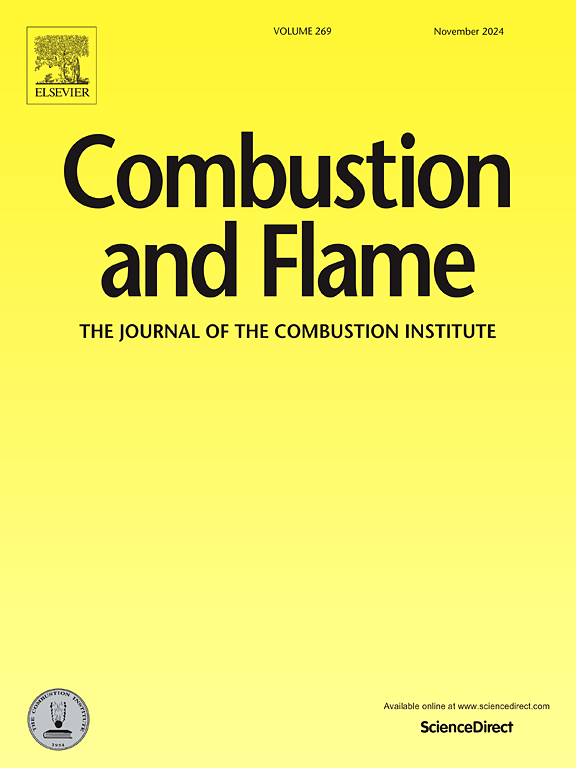Exploring the two-stage ignition of n-butylcyclohexane: A comprehensive experimental and modeling study
IF 5.8
2区 工程技术
Q2 ENERGY & FUELS
引用次数: 0
Abstract
n-Butylcyclohexane (NBCH) serves as a representative surrogate fuel in investigations concerning the combustion characteristics of both jet fuels and sustainable aviation fuels. Understanding its combustion behavior and developing high-fidelity chemical reaction kinetic models are crucial for fuel performance optimization. In this study, a comprehensive investigation of the oxidation kinetics of NBCH under low-temperature conditions was conducted and a novel experimental dataset including both total and first-stage ignition delay times was proposed. A broad range of experimental conditions was investigated, spanning temperatures from 675 - 1300 K and pressures from 5 - 20 atm, under pure oxygen and air conditions, thereby providing valuable data for numerical validation. An updated chemical kinetic model was developed by integrating the comprehensive core mechanism of NUIGMech 1.3 and 30 fuel layer reaction classes. The proposed model corrected errors in the rate coefficients of key reaction classes identified in previous literature and incorporated the latest rate coefficients from theoretical calculations for specific reaction classes, demonstrating superior performance compared to literature models in accurately predicting the first-stage and total ignition delay times under various operating conditions. Additionally, the model performance was assessed through comparisons with various datasets sourced from the literature. The results showed that the updated model provides accurate predictions across a wide range of parameters. The integration of experimental results and kinetic modeling offers deep insights into the combustion processes of n-butylcyclohexane. This comprehensive approach aids in developing more efficient combustion systems and contributes to the broader understanding of fuel behavior under varied operational conditions.
求助全文
约1分钟内获得全文
求助全文
来源期刊

Combustion and Flame
工程技术-工程:化工
CiteScore
9.50
自引率
20.50%
发文量
631
审稿时长
3.8 months
期刊介绍:
The mission of the journal is to publish high quality work from experimental, theoretical, and computational investigations on the fundamentals of combustion phenomena and closely allied matters. While submissions in all pertinent areas are welcomed, past and recent focus of the journal has been on:
Development and validation of reaction kinetics, reduction of reaction mechanisms and modeling of combustion systems, including:
Conventional, alternative and surrogate fuels;
Pollutants;
Particulate and aerosol formation and abatement;
Heterogeneous processes.
Experimental, theoretical, and computational studies of laminar and turbulent combustion phenomena, including:
Premixed and non-premixed flames;
Ignition and extinction phenomena;
Flame propagation;
Flame structure;
Instabilities and swirl;
Flame spread;
Multi-phase reactants.
Advances in diagnostic and computational methods in combustion, including:
Measurement and simulation of scalar and vector properties;
Novel techniques;
State-of-the art applications.
Fundamental investigations of combustion technologies and systems, including:
Internal combustion engines;
Gas turbines;
Small- and large-scale stationary combustion and power generation;
Catalytic combustion;
Combustion synthesis;
Combustion under extreme conditions;
New concepts.
 求助内容:
求助内容: 应助结果提醒方式:
应助结果提醒方式:


